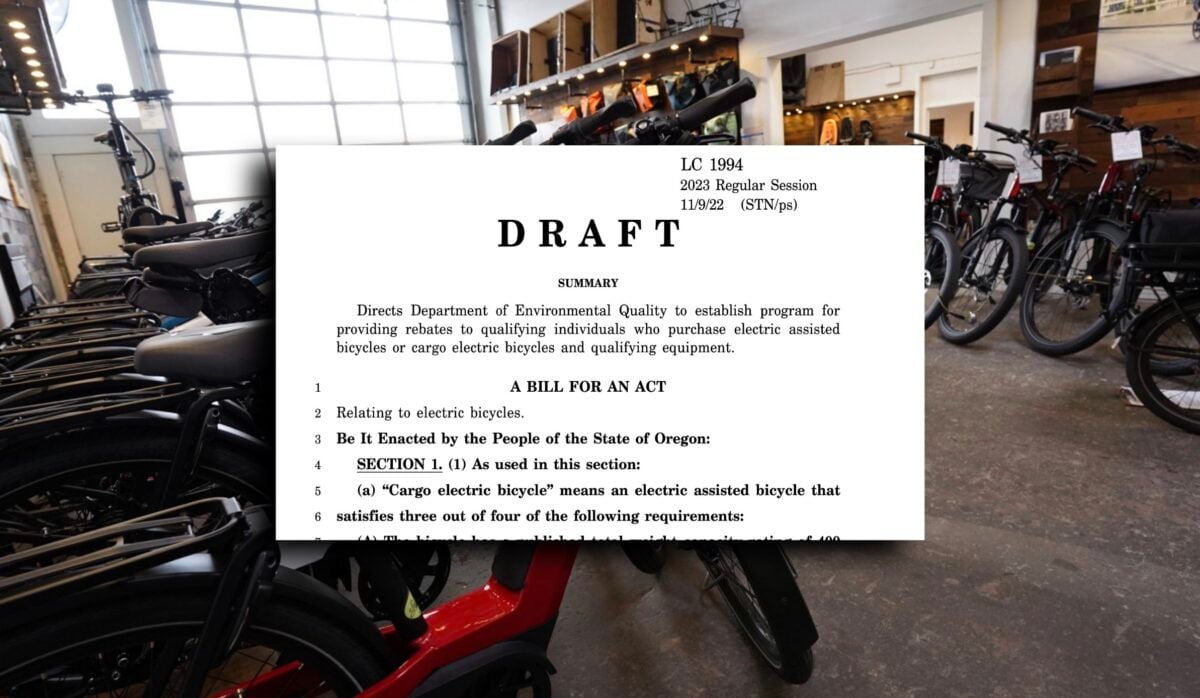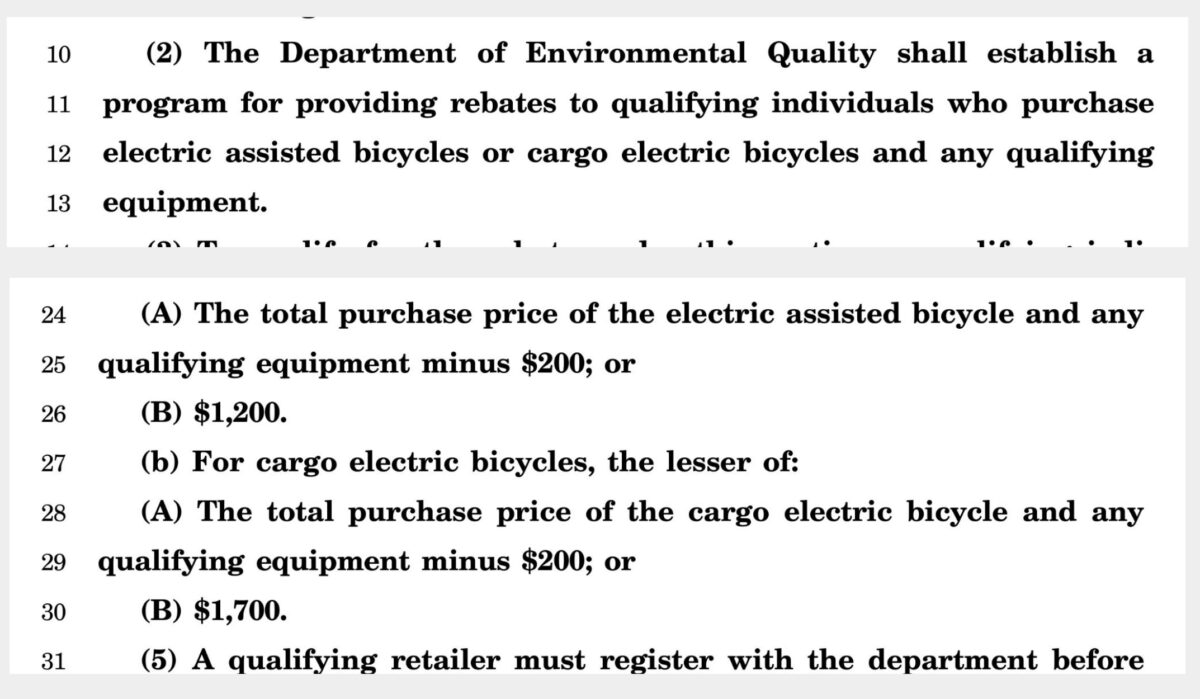
Rebate recipients will be granted up to $1,200 to purchase a non-cargo e-bike or up to $1,700 to purchase a cargo e-bike
Outgoing Oregon State Representative Karin Power (D-41 Milwaukie) has made her affinity for electric bicycles known. She’s also made it clear she thinks the state should offer financial incentives to other Oregonians who want to take advantage of this convenient, fun, environmentally-friendly transportation option.
Power has delivered on her promise: In the 2023 legislative session, Oregon will have the opportunity to enact a government-funding e-bike purchase incentive program.
Legislative Concept (LC) 1994 (PDF), “directs [the Oregon] Department of Environmental Quality to establish program for providing rebates to qualifying individuals who purchase electric assisted bicycles or cargo electric bicycles and qualifying equipment.” Qualifying equipment can include a helmet, “safety vest,” light, or lock.
LC 1994 was prepared by Power and her staff and has since been handed off to Representative Dacia Grayber (D- 35 Tigard), who will sponsor the bill this coming session.

Carrie Leonard, a former Power staffer who helped write this draft, said the proposal is based on Benton County’s e-bike rebate program implemented in 2020. This program was led by the Corvallis Benton County Economic Development Office in partnership with Pacific Power and the Oregon Clean Fuels Program, and offered up to $1,200 for selected people living on low-incomes to buy electric bikes from local businesses. Like other e-bike rebate programs across the country have been, this initiative was a success, proving there is a serious demand for e-bikes — especially when they’re available at a discount.
“We felt, after speaking with the utility company and the project managers at the City of Corvallis, that they had successfully beta tested a robust incentive program that could be used as a model for a state-wide program,” Leonard told BikePortland in a recent email.
According to the e-bike subsidy tracker compiled by researchers at the Portland State University Transportation Research and Education Center, two other cities around the state have embarked on rebate programs in recent years. Eugene’s water and electricity provider began offering a $300 electric bike credit earlier this year, and a program in City of Ashland offers a $200 credit. Grayber’s bill would be the first to make the subsidy available statewide.
LC 1994 would be led by the state Department of Environmental Quality, which would be granted $6 million from the state general fund starting July 1, 2023 to distribute the rebates. Assuming some of the $6 million budget would go toward administrative costs, there should be enough left for several thousand Oregonians to receive subsidies, but it will probably be a competitive program.
Rebate recipients will be granted up to $1,200 to purchase a non-cargo e-bike or up to $1,700 to purchase a cargo e-bike, plus qualifying equipment. The bikes must have a minimum retail sales price of $950.
Even though this proposal was drafted with the Benton County program in mind, the text currently distinguishes itself in that it doesn’t include income requirements to qualify for the rebate: the only requirement is that recipients are Oregon residents and over the age of 16.
One of the rules included in the draft text is that recipients must maintain ownership of the bike for at least a year after receiving the rebate, presumably to discourage people reselling the bike they bought with state funds.
E-bike subsidy proposals have come and gone before — advocates will recall the disappointing death of Portland’s U.S. Representative Earl Blumenauer’s E-BIKE ACT — but with all local e-bike buzz, there’s a case for optimism here. (We won’t fault you for window shopping, but protect your hearts!)
The 2023 session of the Oregon Legislature begins January 17th. Stay tuned for developments as the bill works its way through the process.
You can read the LC draft bill text below. We’ll have more details for you as soon as they’re available.


